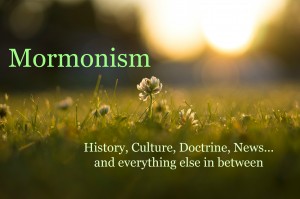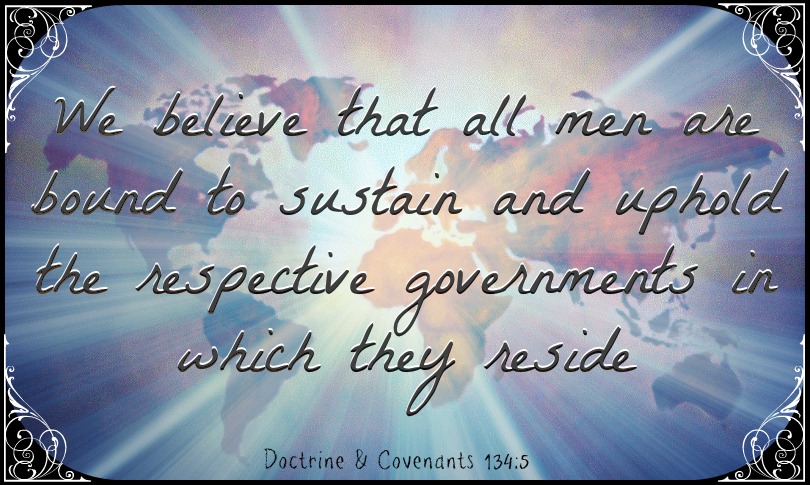When I was nineteen and had been a Mormon for two years, my bishop (lay pastor) and I decided I should become a Mormon missionary for The Church of Jesus Christ of Latter-day Saints. Today, I could have gone on a full-time mission at that age, but in those days, women didn’t go on missions until they were twenty-one. Full-time missionaries leave home and live wherever God sends them for eighteen to twenty-four months, working exclusively for the Church as volunteers.
 We decided, though, that I could serve a part-time mission. They then called them stake missions. A stake is a like a Catholic diocese. Today, that position is called a ward (congregation) missionary.
We decided, though, that I could serve a part-time mission. They then called them stake missions. A stake is a like a Catholic diocese. Today, that position is called a ward (congregation) missionary.
I lived at home and continued attending college, but for twenty hours a week, I also did missionary work as an unpaid volunteer. You can imagine that between school, babysitting, missionary work, community volunteering, and teaching children on Sundays, as well as the social life a part-time missionary is allowed to continue, I was very busy. I was happy to be so busy in such a meaningful way, though, and today, decades later, I’m still glad I made the sacrifice.
I worked with two other women, both much older than me, finding people who wanted to learn about Mormonism and then teaching them. We were assigned, as well, to teach children whose parents were not active in the Church, but who wanted their children to be baptized. Mormons baptize at age eight, and those who do not get baptized during that year must take a series of lessons with the missionaries before joining the Church, even if they are just nine. The Mormons like to make sure their converts know at least the very basics before getting baptized. Our full-time missionaries in that congregation were male, and since I was about their age, I did not teach with them, although they sometimes asked me to visit with and counsel young women they taught.
Later, I had a unique opportunity to be loaned half-time to the mission that taught the deaf. I was taking sign language classes in college, had deaf friends, and taught a class of preschoolers in sign language because one of the children was deaf. This allowed me to work with two full-time female missionaries and gave me insights into their lives as missionaries.
Mormon Ward Missionaries: Serving Their Own Community
One advantage to using ward missionaries is that while the full-time missionaries transfer in and out of the congregation, the ward missionaries stay. They assist the full-time missionaries, but carry on the work after the member is baptized. They can become friends with the people they teach and be a steady resource to the new members. They provide a reassuring sense of continuity for prospective and new members. They are local members of the community and so, as they lead their ordinary lives, they provide an example to those who are curious about Mormons.
 For me, it was an extraordinary opportunity to learn my own religion much better. As I prepared lessons and taught people who were curious about our faith, my personal testimony grew. I faced challenging questions from these people, forcing me to study more deeply. I saw God working through sincere investigators and witnessed miracles that changed my own life, as well as theirs. Following is just one experience and the impact it had on my life.
For me, it was an extraordinary opportunity to learn my own religion much better. As I prepared lessons and taught people who were curious about our faith, my personal testimony grew. I faced challenging questions from these people, forcing me to study more deeply. I saw God working through sincere investigators and witnessed miracles that changed my own life, as well as theirs. Following is just one experience and the impact it had on my life.
One day, the full-time missionaries for the deaf announced that I was going to be teaching the lesson that day. At that time, each mission had its own formal lessons to be learned and presented. Today, missionaries plan their own lessons based on the needs of the student. Since I didn’t know the lessons for the deaf mission, I never taught. I merely assisted in answering questions and sharing testimonies. My sign language was not spectacular, but they handed me their lesson book and told me I had a half hour to memorize the lesson in sign language.
I was startled to realize it was the lesson in which a serious investigator of the faith was going to be invited to become a Mormon. Those lessons are special and the fact that I was going to this lesson meant one of the two missionaries would miss that moment. That missionary would be working with another stake missionary, teaching another family. They pointed out I didn’t have time to argue with them. They also refused to tell me who I was going to be teaching.
When we arrived at the home, I was surprised and thrilled to discover the man we were teaching was a friend of mine from school. He had asked them not to tell me he was learning about our church so he could later surprise me if he decided to join. They had carefully kept the secret, organizing our schedules so I was never with them on the days they taught him. However, he had wanted me there when he was ready to accept baptism. Touched by the sacrifices of these two wonderful sister missionaries on my behalf, I invited my friend to be baptized and he accepted.
After the lesson, we asked him if he had any questions about the church he needed answered before his baptism and confirmation. Tears came to his eyes and he said he had only one. He turned and looked at his wife and little daughter. Ever since he had learned that Mormons believe God intended families to continue on forever, even after death, he had been filled with joy. Now he wanted only to know how long he had to wait to make that happen.
It was then that I first fully understood the power of the doctrine of eternal families. At a critical time in my life, I saw in this man’s face how important his wife and child were to him and how much he knew he needed them to make Heaven perfect. It impacted my own decisions about my future.
Why Mormons Serve Part-Time Missions
For a Mormon, the opportunity to share teachings that change lives is wonderful, but this same opportunity also blesses the Mormon. It is yet another sign that God is wise, because He understands that the teacher often learns the most. I’d been a member of the Church only two years, but already, some teachings had come to seem ordinary to me. During my missionary experience, I was constantly reminded of how remarkable and wonderful God’s eternal plan really was. While I know a full-time mission would be a remarkable experience, I am glad I had the opportunity share my faith as a ward missionary in the early years of my church membership.
Getting to know a ward missionary in your area can be a fun experience for you. You’ll get to see someone who is a part of your own community and who probably lives a great deal like you. You can build the relationship over time and observe how this person lives his or her life. You can take your time as you learn why they wanted to become a Mormon in the first place.
The next time you have a chance to chat with a Mormon missionary, ask this: “Which Mormon doctrine has had the greatest impact on your life?” This question will guarantee you a great discussion, because the best part of learning about the faith of others is to discover how it affects their real life. Religion isn’t just something to read about or to believe—it’s something meant to change us at every level.
If you’re reading this and you’re Mormon, please answer that question for our visitors here in the comments.
About Terrie Lynn Bittner
The late Terrie Lynn Bittner—beloved wife, mother, grandmother, and friend—was the author of two homeschooling books and numerous articles, including several that appeared in Latter-day Saint magazines. She became a member of the Church at the age of 17 and began sharing her faith online in 1992.







